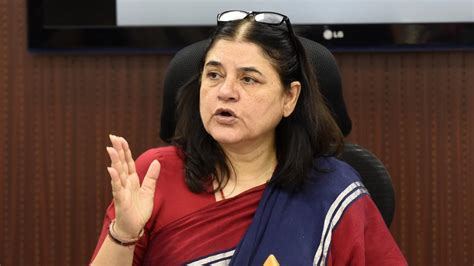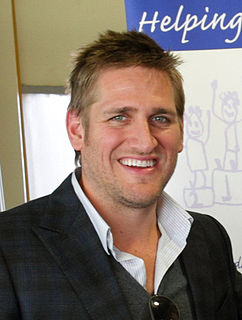A Quote by Frances Moore Lappé
I understand, of course, that grain-fed meat is not the cause of the world hunger problem - and eating some of it doesn't directly take food out of the mouths of starving people - but it is, to me, a symbol and a symptom of the basic irrationality of a food system that's divorced from human needs. Therefore, using less meat can be an important way to take responsibility. Making conscious choices about what we eat, based on what the earth can sustain and what our bodies need, can help remind us that our whole society must begin to balance sustainable production with human need.
Quote Topics
About
Balance
Based
Basic
Begin
Bodies
Cause
Choices
Conscious
Course
Directly
Divorced
Earth
Eat
Eating
Fed
Food
Grain
Help
Human
Human Needs
Hunger
Important
Irrationality
Less
Making
Man Needs
Me
Meat
Mouths
Must
Need
Needs
Our
Out
People
Problem
Production
Remind
Responsibility
Society
Some
Starving
Sustain
Sustainable
Symbol
Symptom
System
Take
Therefore
Understand
Us
Using
Way
Whole
World
World Hunger
Related Quotes
Most of the food crops raised in the world today are fed to livestock destined for slaughter for us to eat, and most of the water used is used to raise the food crops that are fed to those animals. It has been estimated that, because of the extraordinary amount of grain it takes to raise food animals, if we reduced the amount of meat we eat by only ten percent, that would free up enough grain to feed all the starving humans in the world. So when we choose to eat meat instead of vegetables, we are choosing to take food away from others who are hungry.
Children, not a grain of the food we eat is made purely by our own effort. What comes to us in the form of food is the work of others, the bounty of Nature and God's compassion. Even if we have millions of dollars, we still need food to satisfy our hunger. Can we eat dollars? Therefore, never eat anything without first praying with humility.
The American fast food diet and the meat eating habits of the wealthy around the world support a world food system that diverts food resources from the hungry. A diet higher in whole grains and legumes and lower in beef and other meat is not just healthier for ourselves but also contributes to changing the world system that feeds some people and leaves others hungry.
If you like eating meat but want to eat ethically, this is the book for you. From the hard-headed, clear-eyed, and sympathetic perspective of butchers who care deeply about the animals whose parts they sell, the customers who buy their meats, and the pleasures of eating, this book has much to teach. It’s an instant classic, making it clear why meat is part of the food revolution. I see it as the new Bible of meat aficionados and worth reading by all food lovers, meat-eating and not.
Some meat eaters defend meat eating by pointing out that it is natural: in the wild, animals eat one another. The animals that end up on our breakfast, lunch, and dinner plates, however, aren't those who normally eat other animals. The animals we exploit for food are not the lions and tigers and bears of the world. For the most part, we eat the gentle vegan animals. However, on today's farms, we actually force them to become meat eaters by making them eat feed containing the rendered remains of other animals, which they would never eat in the wild.
Unless we change our food choices, nothing else matters. Because it is meat that is destroying most of our forests. It is meat that pollutes the waters. It is meat that is creating disease which leads to all our money being diverted to hospitals. So, it's the first choice for anybody who wants to save the Earth.
While self-interest arising from the enjoyment of meat eating is obviously one reason for its entrenchment, and inertia another, a process of language usage engulfs discussions about meat by constructing the discourse in such a way that these issues need never be addressed. Language distances us from the reality of meat eating, thus reinforcing the symbolic meaning of meat eating, a symbolic meaning that is intrinsically patriarchal and male-oriented. Meat becomes a symbol for what is not seen but is always there--patriarchal control of animals and of language.
It is increasingly obvious that environmentally sustainable solutions to world hunger can only emerge as people eat more plant foods and fewer animal products. To me it is deeply moving that the same food choices that give us the best chance to eliminate world hunger are also those that take the least toll on the environment, contribute the most to our long-term health, are the safest, and are also, far and away, the most compassionate towards our fellow creatures.
To avoid causing terror to living beings, let the disciple refrain from eating meat... the food of the wise is that which is consumed by the sadhus [holymen]; it does not consist of meat... There may be some foolish people in the future who will say that I permitted meat-eating and that I partook of meat myself, but... meat-eating I have not permitted to anyone, I do not permit, I will not permit meat-eating in any form, in any manner and in any place; it is unconditionally prohibited for all.
The United Nations four or five years ago put out a study that said the meat industry, meat-eating, growing meat for food is the No. 1 killer of our planet - not No. 2 or No. 3: No 1. You know what’s No. 2? Transportation. Everyone thinks that No. 1 is transportation, and goes out and buys a hybrid car. Screw the hybrid cars. Don’t eat hamburgers.
We need to realize that these industrial methods of farming have gotten us used to cheap food. The corollary of cheap food is low wages. What we need to do in an era when the price of food is going up is pay better wages. A living wage is an absolutely integral part of a modern food system, because you can't expect people to eat properly and eat in a sustainable way if you pay them nothing. In fact, it's cheap food that subsidized the exploitation of American workers for a very long time, and that's always been an aim of cheap food.
Animals raised on corn produce fattier meat, but it's not just that it's fattier, it's the kinds of fats. Corn-fed beef produces lots of saturated fats. So that the heart disease we associate with eating meat is really a problem with corn-fed meat. If you eat grass-fed beef, it has much more of the nutritional profile of the wild meat.
































